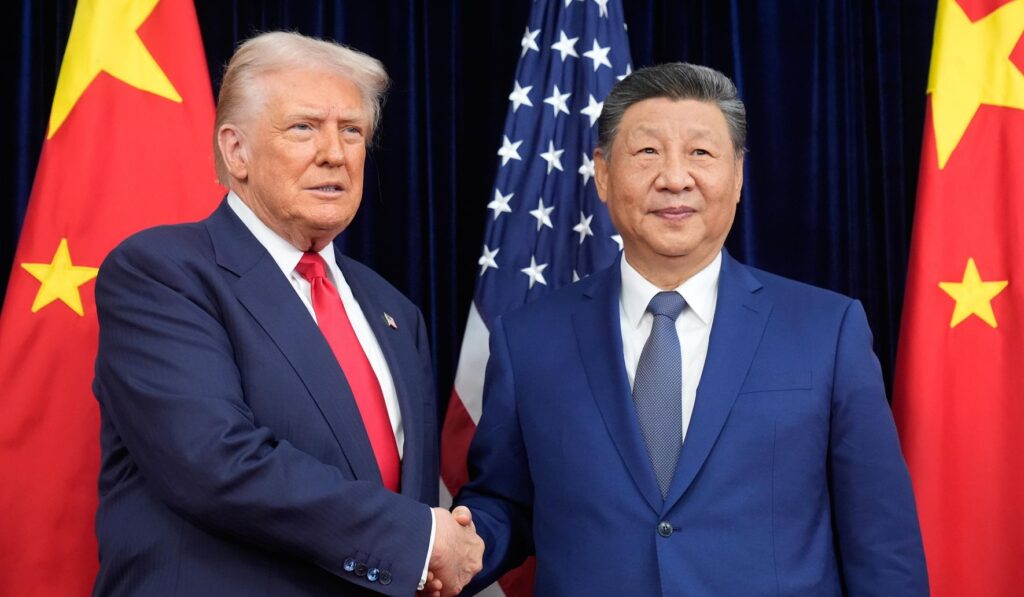President Trump announced that the United States will reduce fentanyl-related tariffs on Chinese goods after Chinese President Xi Jinping agreed to postpone restrictions on rare earth exports for at least a year, a move framed as a pragmatic step to protect supply chains, support law enforcement efforts against synthetic opioid trafficking, and strengthen America’s manufacturing base.
The White House framed the tariff adjustment as a targeted response to a public health and security emergency, not a general trade concession. Administrations on both sides described the change as conditional, tied directly to China’s commitment on rare earths. The announcement stressed timing and reciprocity rather than open-ended relaxation of trade pressure.
Fentanyl and other synthetic opioids have driven a surge in overdose deaths across the country, and customs duties tied to fentanyl precursors were part of a broader strategy to make trafficking pipelines less profitable. By lowering those specific tariffs, the administration argues it can choke off illegal flows while keeping tools to punish deliberate bad actors. The move is pitched as tactical: use trade levers to advance law enforcement goals while avoiding damage to legitimate commerce.
At the same time, Beijing’s agreement to delay rare earth export restrictions for at least a year was portrayed in Washington as a win for national security and industry. Rare earths are critical for defense systems, clean energy technologies, and advanced manufacturing, so uninterrupted access matters for long-term competitiveness. Officials emphasized that the pause gives U.S. industry breathing room to diversify suppliers and accelerate domestic production efforts already in motion.
>President Trump said Thursday the U.S. would lower its fentanyl-related tariffs on Chinese goods after Chinese President Xi Jinping agreed to delay rare earth restrictions for at least a year.
Republican leaders welcomed the arrangement as a balanced outcome that protects American workers and the homeland, while keeping pressure on Beijing where it matters. The framing leans on accountability: concessions are limited, conditional, and tied to measurable outcomes. That approach was described as consistent with a negotiating posture that rewards cooperation but never abandons leverage.
Business groups and manufacturers signaled cautious relief, noting that rare earth security has been an urgent bottleneck for advanced industries. The temporary pause reduces the immediate risk of supply shocks to critical sectors, allowing companies time to invest in alternative sources or domestic processing capacity. Still, executives warned that long-term resilience requires durable policy, not just a yearlong reprieve.
Law enforcement officials said the tariff change should be paired with sharper interdiction and international cooperation to disrupt fentanyl networks at their source and along trafficking routes. The administration pointed to stepped-up seizures, tighter export controls on precursor chemicals, and enhanced intelligence sharing as elements of the broader strategy. The message was clear: trade adjustments are a tool, but they do not replace boots-on-the-ground enforcement.
Strategists in Washington noted that this exchange illustrates a transactional diplomacy where economic and security objectives intersect, and where leverage is used to secure near-term operational wins. By linking tariff relief explicitly to a rare earth agreement, negotiators preserved a narrative of reciprocity and maintained a position to revisit terms if commitments slip. That conditionality is central to how Republican policymakers argued credibility is maintained in future talks.
Critics cautioned about the risks of short-term fixes without structural changes, warning that a one-year delay in export limits does not solve underlying dependencies or address long-term market distortions. Supporters countered that the pause is practical and gives American firms and regulators the runway to enact reforms and investments already planned. The tussle underscores how trade policy has become a tool of national strategy, not just commerce.
Moving forward, officials said they will monitor compliance closely and pursue parallel efforts to build U.S. capacity in rare earth mining and processing while strengthening interdiction of illegal opioid flows. The administration framed the package as a focused, enforceable compromise that advances public safety and industrial security in tandem. Observers will be watching whether the one-year window yields the intended industrial investments and measurable reductions in illicit fentanyl movement.



